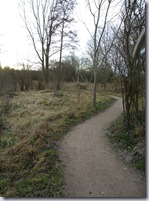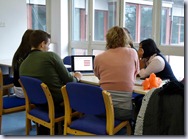 It’s been a good week’s work done.
It’s been a good week’s work done.
I’m wrapping up a three-week stint in Cambridge, closing our fund-raising round for CamStent and delivering my lectures on Medical Devices and Diagnostics at the University. The weather has been insufferably cold and rainy, lightened with a brief flash of spring this week that brought the smaller flowers out across the fields.
The big news has been with investor. Raising money has been much harder than I ever expected: I started a year ago, thinking that it would take three months to raise 300K GBP, but it’s taken far longer than expected. I’ve had to develop skills for pitching and closing on the fly, fortunately with good critiques trainers, and coaches provided by the organizing groups. With persistence, we now have close to the full amount soft-circled and checks are starting to arrive from the angel investors who are backing us.
It’s a real watershed, not only moving from a founder-led company to an investor-backed one, but also from a barely-funded startup to a financially stable micro-business. It’s fun and exciting: I very much appreciate not only our new investors but also the backing of the UK government and universities who brought us this far, and the many friends and mentors who have given support, advice, and encouragement throughout.
 At the University, the lectures got off to a good start, and I’m preparing for another round this week before I hop the ferry back to Maastricht. I changed my approach this year, moving from straight lecture to a more Socratic “context-case examples-discussion” format. I do like the engagement that this approach has encouraged vs. the more distant respect that the “stand-and-deliver” format created of past years.
At the University, the lectures got off to a good start, and I’m preparing for another round this week before I hop the ferry back to Maastricht. I changed my approach this year, moving from straight lecture to a more Socratic “context-case examples-discussion” format. I do like the engagement that this approach has encouraged vs. the more distant respect that the “stand-and-deliver” format created of past years.
It reminds me again of how each discipline develops it’s own characteristic teaching style.
My math and physics classes wee obsessed with problem sets: we would copy the professors lecture notes, then spend hours on derivations and applied problems that have a right method and a right answer that needed to be delivered.
My art classes, in contrast, were softer events: we would do our works, then sit in a circle and critique one another. Feedback was much more immediate and often geared towards developing a style as much as a technique.
In business school, it was all about games: from simulations to negotiations, everything was a case without a real answer: hard skills like accounting and finance were almost picked up casually in seminars while the real work was in reasoning from them towards a persuasive course of action.





